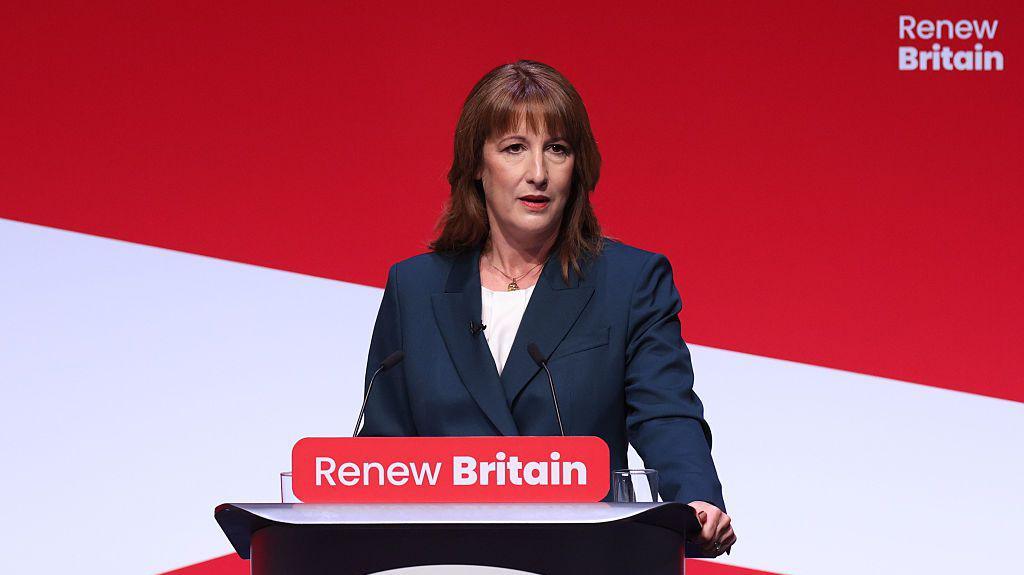Reeves pre-emptively justifies tax rises

Chancellor Rachel Reeves told the Labour Party conference she won't take risks with the public finances
- Published
In Liverpool Rachel Reeves seemed to be floating a pre-emptive argument ahead of possible tax rises in her November Budget.
The key line in the chancellor's speech in relation to the Budget was her linking of tough decisions "in coming months" to global headwinds and a critical reassessment of the long-term productivity performance of the UK economy, about to be delivered by the Office for Budget Responsibility.
"We will face further tests, with choices to come, made all the harder by harsh global headwinds and long-term damage to the economy, which is becoming ever clearer," she said.
This prepares the government's argument if there does need to be further tax rises, even significant ones at the Budget.
Firstly, they will blame the broad global economic backdrop, of trade wars, actual wars and rising government interest rates. "The world has changed," the chancellor told the Today programme.
Secondly, the OBR's reassessment of the UK's long-term economic trends is revealing "ever clearer" evidence of "long-term damage" which she will blame on the record of her predecessors.
The other notable call was for "responsible management of public finances" against opposition voices and those in her own party.
Other than that, this was relatively light on policies. The policies that most of the country are the most interested in - what is in the Budget - have not been nailed down, and depend on the ping pong about to start with the OBR over its forecasting process.
It is on that, where we did get new news today. The chancellor confirmed publicly that she agreed with the International Monetary Fund about changing the fiscal dance that has created non-stop speculation about tax changes.
The OBR forecast by law has to happen twice a year, but that could now only happen in full once a year. There are various options. This is a tacit admission that after whatever emerges from the Budget, everyone would benefit from a period of stability, and that has not been the case over the past year.
Elsewhere she repeated the idea that the election promises not to increase the main tax rates were still in place. When asked if VAT could rise, she said: "The manifesto commitments stand."
This appears to connect the commitments to a state of the world that could change. As the Chief Secretary to the PM Darren Jones said: "The manifesto commitments stand today."
Those manifesto commitments are clearly under pressure, if the OBR's calculations go against the Treasury. Her interpretation of how flexible they are was revealing.
She wants to protect pay packets and "not put up the prices in shops". That would appear to rule out a straightforward rise in the rate of VAT, which would directly raise bills.
There are many other options, depending on the size of the gap - to be revealed to her by the OBR this week - from scrapping some tax breaks and allowances, especially on housing and pensions, to extending the freeze on tax thresholds.
The changes made by the OBR to the UK's underlying rate of growth could add considerably to the gap in the public finances Reeves has to bridge in the Budget. The draft details will be presented to her on Friday.
It is then and only then that the real work of translating a series of tax proposals into a Budget starts in earnest.
The government will also seek to persuade the OBR that its policy moves, from infrastructure plans, to closer ties with Europe, can help long-term growth.
Today was about leaving some options open, at a tricky time. The extent of tax rises, and who gets hit, is still very much up for grabs.